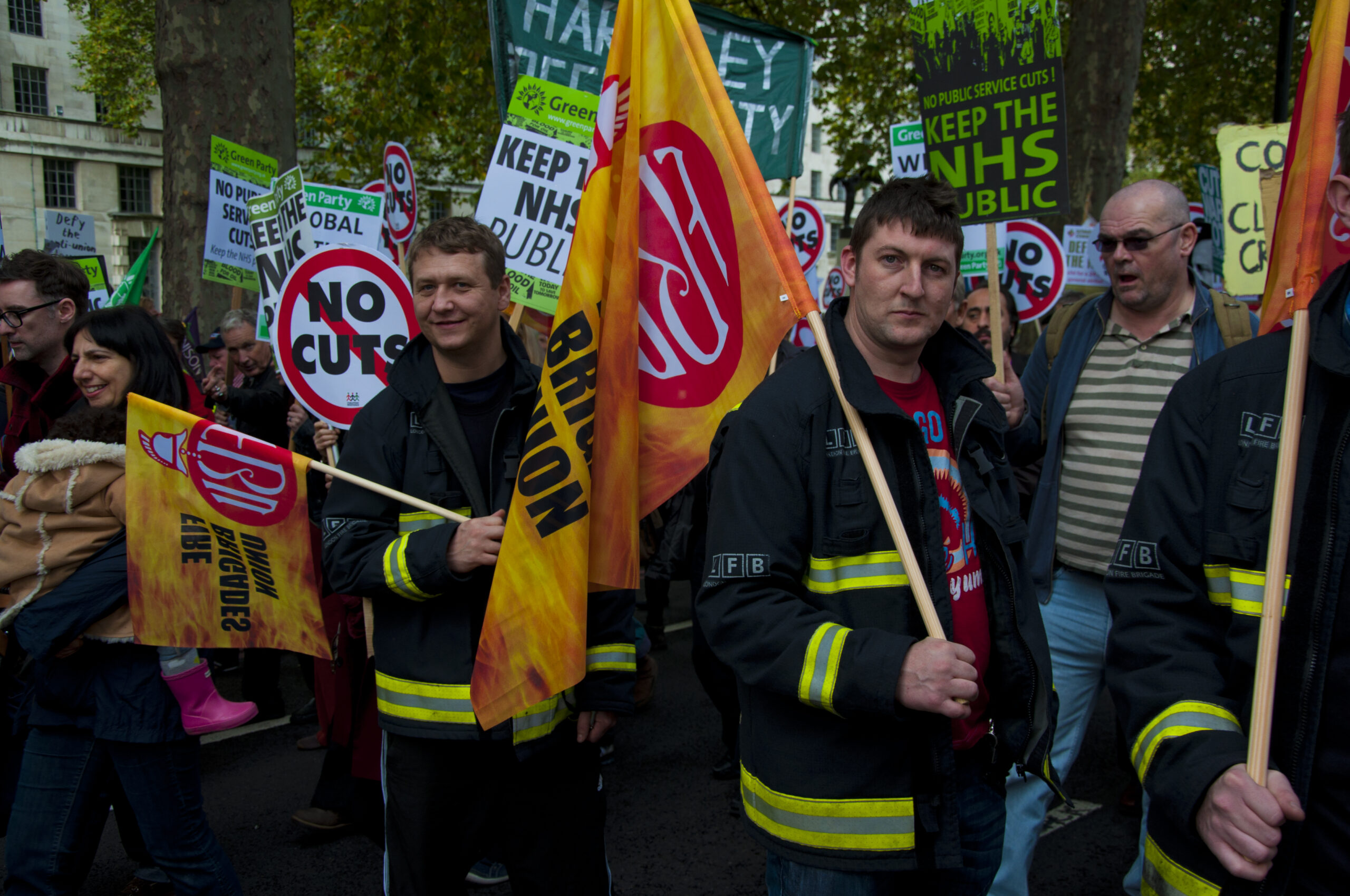ON 4 OCTOBER, the FBU leadership announced that a revised five per cent pay offer – an improvement on a previous two per cent offer – had been received from the national fire service employers. The following day, the union’s executive council decided that the fresh offer would be put to members in a consultative ballot along with a recommendation to reject.
Nothing then happened for a fortnight. Then, on 18 October, the leadership announced that the consultative ballot would not begin until 31 October – almost four weeks after the decision to hold the ballot was taken – and would close on 14 November.
In the event of a vote to reject the revised offer, a ballot for strike action will commence.
The delay in getting the consultative ballot under way has caused more disgruntlement among members who were already frustrated at the drift and inertia that has characterised much of the pay campaign over the past few months.
It seems that the FBU leadership is unable or unwilling to move quickly or show the dynamism that is vital in any major industrial campaign.
It is worth remembering that it was way back on 11 May that the FBU’s annual conference agreed a policy statement authorising the union’s executive council to campaign for a pay rise that would take account of the real terms pay reductions suffered by firefighters over recent years, as well as the higher cost of living. That policy statement resolved that the campaign should include consideration of strike action.
With the annual pay settlement due, as always, on 1 July, this gave the executive council over seven weeks after the conference to begin the debate with members and to prepare them for strike action in the event that a satisfactory offer was not forthcoming from the employers. But the reality was that very little engagement with members took place during those weeks.
Then, on 27 June, just four days before the pay settlement date, the employers tabled their two per cent offer. After a three-week consultation with members via the union’s internal branch-based structures, the executive council rejected the offer out of hand and resolved to put in place plans to hold a ballot for strike action.
Nothing much then happened for around seven weeks. Then, on 6 September, members received a further update. This update informed them that the strike ballot would not commence for another five weeks. This meant that a period of 15 weeks would have elapsed between receipt of the employers’ derisory two per cent offer and the commencement of the strike ballot.
And then, just a few days before the strike ballot was due to get under way, came the employers’ revised five per cent offer. This development persuaded the executive council to place the strike ballot plans on ice and to hold the consultative ballot.
Yet there doesn’t seem to be any convincing explanation for the four-week period between the executive council deciding (on 4 October) to hold the consultative ballot and the ballot actually getting under way (on 31 October). Just as there was no credible explanation for why it took 15 weeks from the date of the employers original two per cent offer before the union would have commenced the (now on-hold) ballot for strike action.
There are, of course, a number of legal hoops that unions must jump though before they can begin a ballot for industrial action; but these obstacles do not provide anything like a full explanation for these delays in the FBU’s campaign.
Realistically, and assuming the revised offer is rejected, it is unlikely that FBU members will be taking strike action before next year. The danger, therefore, is two-fold: first, that the continued drift will result in a loss of momentum in the campaign and diminished enthusiasm for it among members; and, second, that the FBU will miss the boat when it comes to the current wave of industrial unrest that has broken out and has united workers in the struggle against falling real wages and the increased cost of living.
The executive council’s decision to hold a consultative ballot has itself raised eyebrows. Such ballots are quite rare and usually held only when the leadership is recommending something. It seems odd that a full online and postal consultative ballot overseen by an independent scrutineer (which certainly won’t come cheap) is to be held on an offer that the leadership deems to not be worthy of acceptance.
Moreover, some members have asked why a branch-based consultation was deemed appropriate for the original two per cent offer but not for the revised five per cent offer.
And what if another revised offer – say, six per cent – is tabled by the employers? In that scenario, would the union leadership hold another expensive and time-consuming consultative ballot, or would it revert to the branch-based structures?
Senior officials have, in the past, been quick enough to stress the importance of using branch structures to make decisions. Do these structures suddenly not matter?
One thing is for sure: using the branch structures to decide on the revised offer would have been a hell of a lot quicker than holding a full-blown consultative ballot.
The truth is that the FBU leadership was slow out of the blocks at the beginning of this campaign, and it has barely increased the pace since. The drift and inertia are causing unease and frustration among members who see other unions taking action while their own drags its heels.
There is also growing concern at the leadership’s refusal since the start of the campaign to recall annual conference – the parliament of the union – so that local officials can debate and decide crucial questions around aims, demands and strategy. Democracy demands that members should, through their local representatives, be entitled to their say on these key issues. So far, that has been denied to them. That denial of democracy is simply not acceptable.
Similarly, the refusal to define the pay claim – in contrast to a number of other unions – has caused confusion and division. Members are entitled to know what it is they are being asked to strike for. The leadership’s vagueness on this question is wholly counter-productive.
So the message to the leadership needs to be clear: Recall annual conference. Define the pay claim. And, for Pete’s sake, get a move on with the campaign!

